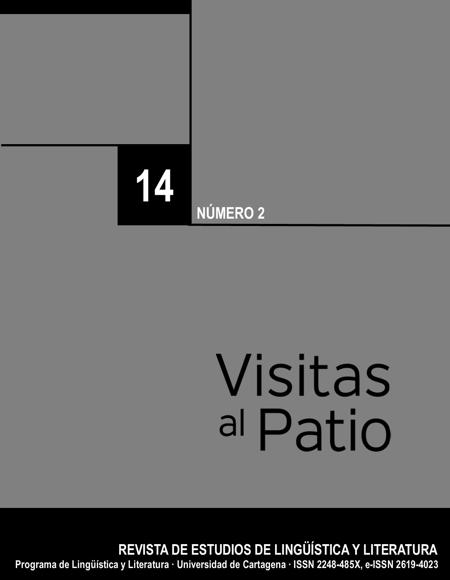Imaginación narrativa y raza : una lectura entrecruzada de Martha Nussbaum y Toni Morrison.
Narrative imagination and race : an intersected reading on Martha Nussbaum and Toni Morrison.
Contenido principal del artículo
Resumen
En El cultivo de la humanidad Martha Nussbaum propone la noción de imaginación narrativa, evidenciando la relevancia del estudio de la literatura en la educación superior estadounidense con el propósito de fortalecer, así, la formación de a quienes ella designa como “ciudadanos del mundo”. A través de la lectura de un texto literario, explica, los lectores pueden empatizar y entender las experiencias de los otros y sus decisiones. La filósofa asume una perspectiva humanista y universal que cuestiona la mirada de las llamadas “política de las identidades”. Reviso estos argumentos según el análisis crítico de Toni Morrison sobre raza en libros canónicos de la literatura estadounidense de los siglos XIX y XX. La escritora examina cómo la imaginación de los autores, materializada en los textos, contribuyó a la racialización y al racismo en la conformación de las ideas de nación y ciudadanía. A partir del examen de Morrison y de otros teóricos y críticos literarios, establezco un comentario crítico a la idea liberal de Nussbaum de imaginación narrativa y a su razonamiento sobre el discurso de las identidades.
Palabras clave:
Descargas
Detalles del artículo
Referencias (VER)
Baker, C. (2004). Identity Politics. Dictionary of Cultural Studies [versión electrónica]. London: Sage Publications. https://uk.sagepub.com/en-gb/eur/the-sage-dictionary-of-cultural-studies/book219252
Barthes, R. (1978). Image-Music-Text (Stephen Heath, trad.). New York: Farrar, Straus and Giroux
Behrendt. S. (2017. diciembre). The Relevance and Resiliency of the Humanities. MLA Profession. https://profession.mla.org/the-relevance-and-resiliency-of-the-humanities/
Berlant, L. (1988). The Female Complaint. Social Text, (19/20), 237-259. https://doi.org/10.2307/466188
Berlant, L. (2000). The Subject of True Feeling: Pain, Privacy and Politics. En S. Ahmed, J. Kilby, C. Lury, M. McNeil y B. Skeggs (Eds.), Transformations Thinking Through Feminism, (pp.) Routledge.
Booth, W. (1983). The Rhetoric of Fiction. Chicago: Chicago University Press. https://doi.org/10.7208/chicago/9780226065595.001.0001
Celis, N. (2017). La soledad de Úrsula: Intimidad y violencia en Macondo, ayer y hoy. En J. Moreno Blanco (Ed.), Cien años de soledad 50 años después, (pp. 337-356). Cali: Universidad del Valle.
Christian, B. (2019). La carrera por la teoría (Mónica del Valle, trad.). Actualidades Pedagógicas, (73), 119-134. https://doi.org/10.19052/ap.vol1.iss73.7
Damajanova, L. (1993). Particularidades del lenguaje femenino y masculino en español. Estudio de caso en la novela latinoamericana: Isabel Allende, Marvel Moreno, Gabriel García Márquez y Plinio Mendoza. Sofia: Sofia Press-Infocontact.
Eagleton, T. (2016). Cómo leer literatura. Barcelona: Planeta.
Eagleton, T. (2016 [1982]). Una introducción a la teoría literaria. Ciudad de México: Fondo de Cultura Económica.
Eagleton, T. (2016, 7 de julio). What’s Next after Postmodernism. Left Voice. (A. Ríos, entrevistadora). https://www.leftvoice.org/what-s-next-after-postmodernism
Foucault, M. (2000). ¿Qué es el autor? Michel Foucault. El seminario.com.ar. http://23118.psi.uba.ar/academica/carrerasdegrado/musicoterapia/informacion_adicional/311_escuelas_psicologicas/docs/Foucault_Que_autor.pdf
Hall, S. (2003). Introducción: ¿quién necesita “identidad”? En S. Hall y P. du Gay (Comps.), Cuestiones de identidad cultural, (pp.13-39). Buenos Aires: Amorrortu Editores.
Heyes, C. (2018). Identity Politics. En E. Zalta (Ed.). The Stanford Encyclopedia of Philosophy https://plato.stanford.edu/archives/fall2018/entries/identity-politics/
Jackson, S. y Moody-Freeman, J. (Eds.). (2011). The Black Imagination: Science Fiction, Futurism and the Speculative (Black Studies and Critical Thinking). New York: Peter Lang.
Jauss, H. R. (1982). Toward an Aesthetic of Reception. Minneapolis: University of Minnesota Press.
Kleingeld, P. y Brown, E. (2019). Cosmopolitanism. En E. Zalta (Ed.), The Stanford Encyclopedia of Philosophy. https://plato.stanford.edu/archives/fall2018/entries/identity-politics/
Mambrol, N. (2018). Key Theories of Hans Robert Jauss. Literary Theory and Criticism. https://literariness.org/2018/02/01/key-theories-of-hans-robert-jauss/
Morrison, T. (1992). Playing in the Dark: Whiteness and the Literary Imagination. New York: Vintage eBooks.
Hyslop-Margison, E. y Nassim, A. (2006). Nussbaum’s Concept of Cosmopolitanism: Practical Possibility or Academic Delusion? Paideusis, 15(2), 51-60. https://doi.org/10.7202/1072680ar
Nussbaum, M. (2005). El cultivo de la humanidad. Una defensa clásica de la reforma en la educación liberal. Barcelona: Paidós Ibérica.
Nussbaum, M. (2010). Sin fines de lucro. Por qué la democracia necesita de las humanidades. Madrid: Katz. https://doi.org/10.2307/j.ctvndv60c
Strauss, V. (2017). Why we still need to study the humanities in a STEM world. The Washinghton Post. https://www.washingtonpost.com/news/answer-sheet/wp/2017/10/18/why-we-still-need-to-study-the-humanities-in-a-stem-world/



 PDF
PDF
 FLIP
FLIP





